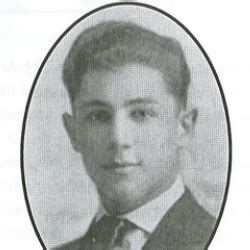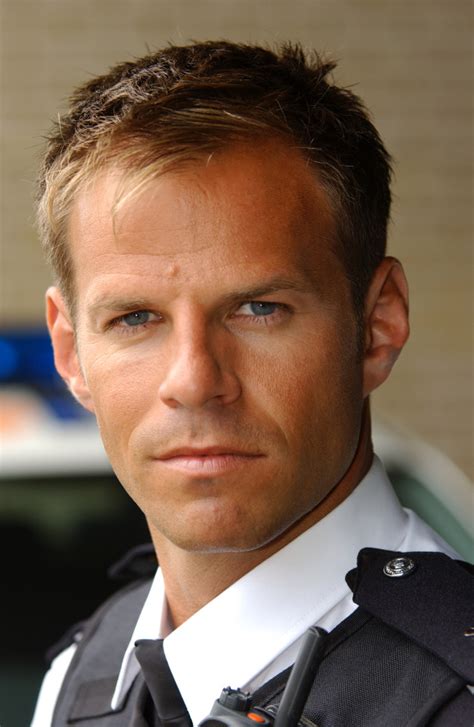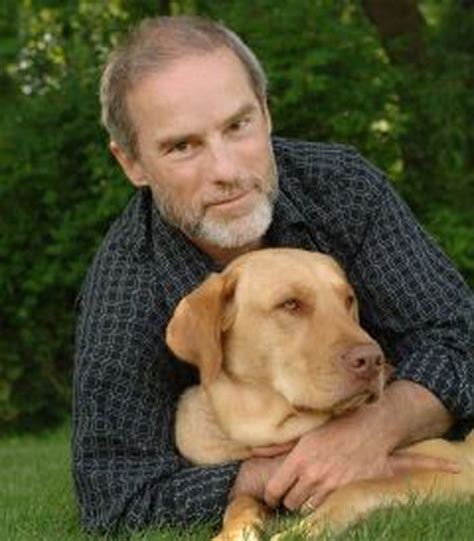A Quote by Sidney Buchman
Capra always wanted a screenwriter with him, even on the soundstage. The writer had to be there at his side.
Related Quotes
I got to watch Frank Capra, in his eighties, in action. You read all the stories about Frank Capra fighting with the head of Columbia, Harry Cohn, "It's my way or the highway." I got to watch that. He lambasted me, "You cannot do this. You will fail." Finally, after another hour of conversation, I convinced him to help me write the speech.
Then I dropped my forehead against his and sat there for a long time, as if I could telegraph a message through our two skulls, from my brain to his. I wanted to make him understand some things. You know all that stuff we’ve always said about you?” I whispered. “What a total pain you are? Don’t believe it. Don’t believe it for a minute, Marley.” He needed to know that, and something more, too. There was something I had never told him, that no one ever had. I wanted him to hear it before he went. Marley,” I said. “You are a great dog.
I wanted to walk over there. I wanted to curl up beside him, lean against him, talk to him. I wanted to know what he was thinking. I wanted to tell him everything would be okay. And I wanted him to tell me the same thing. I didn't care if it was true or not- I just wanted to say it. To hear it, to feel his arms around me, hear the rumble of his words, that deep chuckle that made me pulse race
The analytical writer observes the reader as he is; accordingly, he makes his calculation, sets his machine to make the appropriate effect on him. The synthetic writer constructs and creates his own reader; he does not imagine him as resting and dead, but lively and advancing toward him. He makes that which he had invented gradually take shape before the reader's eyes, or he tempts him to do the inventing for himself. He does not want to make a particular effect on him, but rather enters into a solemn relationship of innermost symphilosophy or sympoetry.
When I finally got my break in TV, as a staff writer, I always wanted to be at the top of that pyramid. I always wanted to make the decisions. I always wanted to be the one that was saying, "This is what the show is, and this is what the show is not. This is where we're going. It's going to be this kind of series." It was just something I always had my eye on, when I started in the business.
I went to visit Frank Capra, one of my idols, and did a kind of Judd Apatow interview with him. I said, "I'd like the Statue of Liberty to disappear, but I want to do it as a lesson in freedom, how valuable freedom is and what the world would be like without liberty." And Frank Capra looked at me and said, "David, I love your idea, but here's what you're going to do. You're going to try and it's not going to work; it's not going to disappear." And I said, "Mr. Capra, I can't do that."
I kept glancing at him and away from him, as if his green eyes were hurting me. In modern parlance he was a laser beam. Deadly and delicate he seemed. His victims had always loved him. And I had always loved him, hadn't I, no matter what happened, and how strong could love grow if you had eternity to nourish it, and it took only these few moments in time to renew its momentum, its heat? -Lestat
The parents have to learn that the child should not be insulted, humiliated, condemned. If you want to help him, love him more. Appreciate what is good in him rather than emphasizing what is bad. Talk about his goodness. Let the whole neighborhood know how nice and beautiful a boy he is. You may be able to shift his energy from the bad side to the good side, from the dark side to the lighted side, because you will make him aware that this is the way to get respect, this is the way to be honored. And you will prevent him from doing anything that makes him fall down in people's eyes.





































